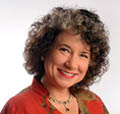If you were doomsday prepping for the intellectual life, what would you bring?
It wasn't the recent attacks in Europe that made me start thinking about how I'd pack for the post-apocalypse. That would sort of make sense.
Nope, I first started thinking about doomsday prepping for the intellectual life after completing an annual survey sent to faculty members at colleges and universities throughout the country.
I made my way through the document — prepared by a consortium of professional and scholarly organizations — but found the questions to be increasingly skewed.
They seemed to suggest that everything and everyone convert to an exclusively digital life. It had wisps of what might be called electronic-evangelism sticking to it.
The questions didn't come out and say, "On a scale of 1 to 5, do you agree that it would be cost-effective to use books published before 1973 as fuel to heat essential campus fitness centers?"
But, it was implied.
They asked something along the lines of whether the "resources" now consumed by libraries couldn't be used more effectively elsewhere on campus.
Because, you know, every school worth the paper its diploma is printed on really needs a gluten-free dining hall with ambient lighting. Hey, the way we're headed, diplomas are going to be the only thing available on paper.
Should libraries be stamped out-of-circulation, designated anachronistic and obsolete? If a book or scholarly journal can be made available online, why should we bother with hard copies?
Instead of bulky Victorian novels taking up valuable shelves, for example, or pesky medieval manuscripts cluttering up cabinets, can't all print material be accessed via SparkNotes? Oh, sorry — I meant Kindles.
Here's why we need actual books: Libraries are citadels for the mind and the soul; libraries are fortresses for our intellectual and cultural lives. If the world came close to tumbling down, while some people would be running to fallout shelters or to "prepper castles," some of us would be running toward the open stacks. We'd want the lions, Fortitude and Patience, guarding the New York Public Library to defend us.
It's not only the pen that's mightier than the sword; the paper the words are printed on is important, too. So's the binding.
My gut reaction to the survey was a deep wish to buy every book in the world.
I wanted to hoard. Obviously, hoarding is a doomsday impulse. The way that other doomsday preppers might be lining their cellars with canned goods, gallons of water, boxes of batteries and cans of Spam, I thought of stockpiling Wharton, James, Eliot, Dickens, Hardy, Mantel and Atwood. You definitely look to Margaret Atwood for anything post-apocalyptic. She's been writing about it for years.
I'd also want to make sure I had books by Mark Twain, Dorothy Parker, Robert Benchley, Erma Bombeck, Dave Barry, Angela Carter, Edna O'Brien and Fay Weldon, because you'd need works to make you laugh as well as unnerve you. You would also have every volume of the OED — the Oxford English Dictionary — but not the compact ones where the print is too small to read, because that would be tiring if you were reading under tiny lights, candlelight, or, for that matter, under duress of any kind. Remember, it's not as if you are going to be able to power up your iPad.
How else would I prepare for post-doomsday intellectual life? Lots and lots of paper and pens. I'd be using the pens to make marginal notes in all of those books, for one thing. But I'd want to keep a record, too, and be able to tell a story. (This reminds me that, of course, I would want to bring the "The Iliad" and "The Odyssey," the Bible, the I-Ching and Stephen King). Paper would also be useful for other kinds of creativity: drawing, making paper hats, making tiny sailboats, making paper airplanes, putting messages in bottles.
Books in a library, like messages in bottles, pass along meaning in clothbound escrow.
If a university diminishes the significance of its libraries and librarians, it diminishes itself. It undercuts the definition and mission of education and slices at the very foundation of learning. Great institutions are known for their great libraries. That will never change.
Volumes speaks volumes.
Gina Barreca
The Hartford Courant
(TNS)
Comment by clicking here.
Gina Barreca is a columnist for The Hartford Courant.



 Contact The Editor
Contact The Editor
 Articles By This Author
Articles By This Author